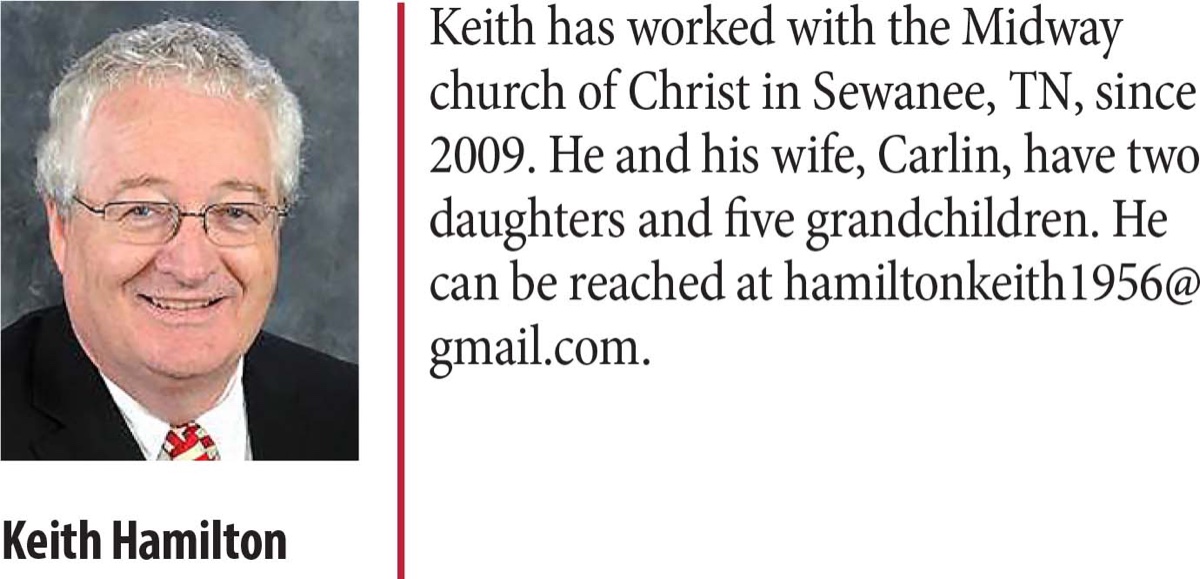
by Keith Hamilton
Synopsis: One characteristic of outstanding leaders is that they can see the potential in someone when others do not.
Visualize for a moment an imaginary meeting. The disciples, now apostles of the Lord, are sitting in a room and having a discussion. Peter has just returned from the house of Cornelius and reported the successful conversion of a group of Gentiles. The topic focuses on the need to identify someone who could lead the work of preaching the gospel to the Gentiles. As the apostles are reflecting in silence, one of them cheerfully speaks up. He says, “I know the perfect person for this work.” The other apostles look at him curiously, anticipating his suggestion. He says, “The ideal candidate for this work would be Saul of Tarsus!” We can only imagine the gasps of horror, chuckles, or even the critical, “Have you lost your mind?” Given the circumstances that existed, this reaction would have been expected. However, we know “the rest of the story.” The Lord declared that Saul of Tarsus was a “chosen vessel unto me, to bear my name before the Gentiles, and kings, and the children of Israel” (Acts 9:15). Knowing the reputation of Saul, the reaction imagined above would have been expected. The response by Ananias shows he was not too keen on the idea: “Lord, I have heard by many of this man, and how much evil he hath done to thy saints in Jerusalem” (Acts 9:13, 21). This reminds us of an essential truth: “the Lord does not see as man sees; for man looks at the outward appearance, but the Lord looks at the heart” (1 Sam. 16:7, NKJV) One remarkable thing I have observed in successful leaders is a unique ability they have to look past a person’s personality and reputation when working with them.
We live in a very fickle time where people are judged based upon the perception that others have of them. The problem is that what folks “like” about a person’s character today may change tomorrow. Society is often governed by “rock stars” who are popular at that moment, not because of their ability to perform but because of their personality. We cannot allow this worldly mindset to affect the way a local congregation chooses leaders. Selecting elders, deacons, and preachers should be done in a grave and mature manner. Unfortunately, in some places, it appears that adolescents are in charge and leadership selection looks more like voting for the high school homecoming queen and king.
One thing that is true of effective leaders is that they can see the potential in someone when others do not. They will also trust in someone when others will not. When General Eisenhower needed a hard driving leader who could rescue the American troops at the Battle of the Bulge, there was no doubt in his mind who to tap: General George Patton. General Patton’s personality was arrogant and caustic. He said and did things that got him in serious trouble. Many did not like him and believed he should have been removed. Yet, General Eisenhower knew there was one, and only one, individual who had the performance ability that was presently needed.
Some folks never learn the lesson that you can work with and work for people you may not like. Yet, even a casual study of the Scriptures reveals God chose people to perform some tasks that men would not have chosen. Which of us would have chosen the men that Jesus did to be apostles? God looked past personality and reputation to call upon people with the ability to perform the work to which He called them. The prophet Amos also comes to mind. He was a “country boy” from Tekoa who made a living herding goats and picking sycamore fruit (Amos 7:14). Yet, God called him from obscurity and sent him to Jerusalem to preach repentance to the sinful and affluent “city folks.” Although he lacked a sophisticated education and possessed a rough personality, Amos fulfilled God’s call to preach (Amos 7:15). At one point, Amos referred to the worldly wives of the wicked leaders as the “kine of Bashan” (Amos 4:1), which is equivalent to calling them a bunch of “fat cows.” Folks, that’s rough! Yet, this uneducated and “uncouth” man whom God called from obscurity stepped outside that which was familiar to serve in a role beyond his prior experience. It was not the messenger that was important, but the message. Let us not forget that this has always been the case. May we see people for their potential and ability, looking past their personality and present accomplishments. Let us not make judgments about others based on a superficial consideration of their reputation (i.e., what others say about them). Leaders must focus on developing everyone they work with and not just those that they “like.” This brings us then to an important point regarding the ability of great leaders.
I used to make this statement to members of management when I provided training or coaching. I meant that they needed to get to know each person with whom they worked and what their specific needs were. There is no “cookie cutter” approach to leadership. Some people need encouragement and direction, while others just need support. When I used to coach at a high school, I learned that there were some players who would not respond without me “getting on to them.” Yet, others, if I looked cross at them, would tune up and cry. As a coach, I had to learn how to adjust my leadership style for each person with whom I interacted.
I love what Head Baseball Coach Tim Corbin of Vanderbilt does at the beginning of practice with his team. As the players form a circle to stretch and warm up, Coach Corbin gets in the middle of the circle and goes back and forth from player to player, talking to each of them. Coach Corbin learns each of his players and knows what they specifically need for development. It would be wise for elders to learn about the members of the congregation they serve (lead) to know what each person needs for development. How else can they truly “feed” the flock? This obviously cannot happen if the elders do not even know who some of the members are.
The apostle Paul applied this principle of knowing where people are in order to serve them when he wrote to the church at Corinth: “I, brethren, could not speak to you as to spiritual people, but as to carnal, as to babes in Christ. I fed you with milk, and not with solid food; for until now you were not able to receive it, and even now you are not able; for you are still carnal. . . (1 Cor. 3:1-3). Leaders learn to adjust to each person. Some require a”hands on” approach. There is another important point that leaders need to learn with people.
Believe it or not, this is probably the hardest thing for many leaders to learn. Sometimes the best thing you can do for some people is get out of their way. This requires a high level of trust by a leader. Some folks have the mistaken impression that a leader must know everything and be involved in every decision. However, a skilled leader knows how to develop the people they work with so that they can function without them. This principle applies in every sphere: home, work, community, and even in the local church.
A great leader wants the people they work with to become self-directed so that when they see an opportunity to function within their authorized sphere, they do not have to ask for permission. They do what needs to be done. A church needs to be filled with energetic disciples who, when they have an opportunity to serve, just do it. They don’t have to be exhorted to take advantage of the opportunity. They also have the trust of the leaders of the local congregation to know that they will function in a scriptural manner. This will happen only when spiritual leaders create an environment of trust. Jesus saw the potential of Paul (Saul of Tarsus) and then “trusted” him with the gospel (1 Thess. 2:4). Let us also learn to see the potential in others and then trust them to render faithful service. 


